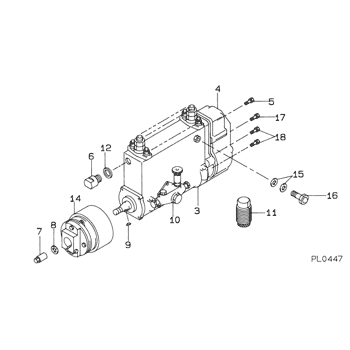Rating:
Information pump assy, injecti Denso
Include in ##:
Cross reference number
Part num
Firm num
Firm
Name
19100-00465
PUMP ASSY, INJECTI
Information:
Biodiesel is a fuel that can be made from a variety of renewable resources that include vegetable oils, animal fat, and waste cooking oil. Soybean oil and rapeseed oil are the primary vegetable oil sources. The raw oils or animal fats are chemically processed (esterified) to form a fatty acid methyl ester (referred to as FAME). The esterified product (FAME) is biodiesel fuel that can be used in compression ignition engines. Without the chemical processing referred to as esterification, the oils or fats are not suitable for use as fuel in compression ignition engines. In order to use any of the oils or fats listed above as fuel, the oil or fat must be esterified and the water and contaminants removed.Fuel made of 100 percent FAME is generally referred to as B100 biodiesel or neat biodiesel.Biodiesel can be blended with distillate diesel fuel. The blends can be used as fuel. The most commonly available biodiesel blends are B5, which is 5 percent biodiesel and 95 percent distillate diesel fuel, and B20, which is 20 percent biodiesel and 80 percent distillate diesel fuel. Note that the percentages are volume based.U.S. distillate diesel fuel specification "ASTM D975-09a" includes up to B5 (5 percent) biodiesel. Currently, any diesel fuel in the U.S. may contain up to B5 biodiesel fuel.European distillate diesel fuel specification "EN 590" includes up to B5 (5 percent) and in some regions up to B7 (7 percent) biodiesel. Any diesel fuel in Europe may contain up to B5 or in some regions up to B7 biodiesel fuel.Engines that are manufactured by Caterpillar are certified by use of the prescribed U.S. EPA and European Certification fuels. Caterpillar does not certify diesel engines to meet emissions standards on any other fuel.Note: The user of the engine has the responsibility of using the correct fuel that is recommended by the manufacturer and allowed by the U.S. EPA and other appropriate regulatory agencies.Caterpillar is not in a position to evaluate the many variations of biodiesel and the long term effects on performance, durability, or compliance to emissions standards for Caterpillar products.Note: In order to align Caterpillar recommendations with the latest revision of "ASTM D7467" specification for B6-B20 blends and to ensure that biodiesel fuel meets defined quality standards, Caterpillar recommendations for acceptable biodiesel blend for most engines have been changed to B20. Details on the use of higher blends are given in this "Biodiesel" section of this Special Publication.
In North America, the use of biodiesel from "BQ-9000" accredited producers and "BQ-9000" certified marketers is required. Refer to the "Recommendations" section for details.
Failures that result from the use of any fuel are not Caterpillar factory defects. Therefore, the cost of repair would NOT be covered by the Caterpillar warranty for materials and/or the warranty for workmanship.
The footnotes are a key part of the "Caterpillar Specification for Biodiesel Fuel" Table. Read ALL footnotes.
Table 1
Recommendations for biodiesel fuel application in On-Highway Cat engines
Production year Engine model Biodiesel acceptable blend levels (1)
In North America, the use of biodiesel from "BQ-9000" accredited producers and "BQ-9000" certified marketers is required. Refer to the "Recommendations" section for details.
Failures that result from the use of any fuel are not Caterpillar factory defects. Therefore, the cost of repair would NOT be covered by the Caterpillar warranty for materials and/or the warranty for workmanship.
The footnotes are a key part of the "Caterpillar Specification for Biodiesel Fuel" Table. Read ALL footnotes.
Table 1
Recommendations for biodiesel fuel application in On-Highway Cat engines
Production year Engine model Biodiesel acceptable blend levels (1)


